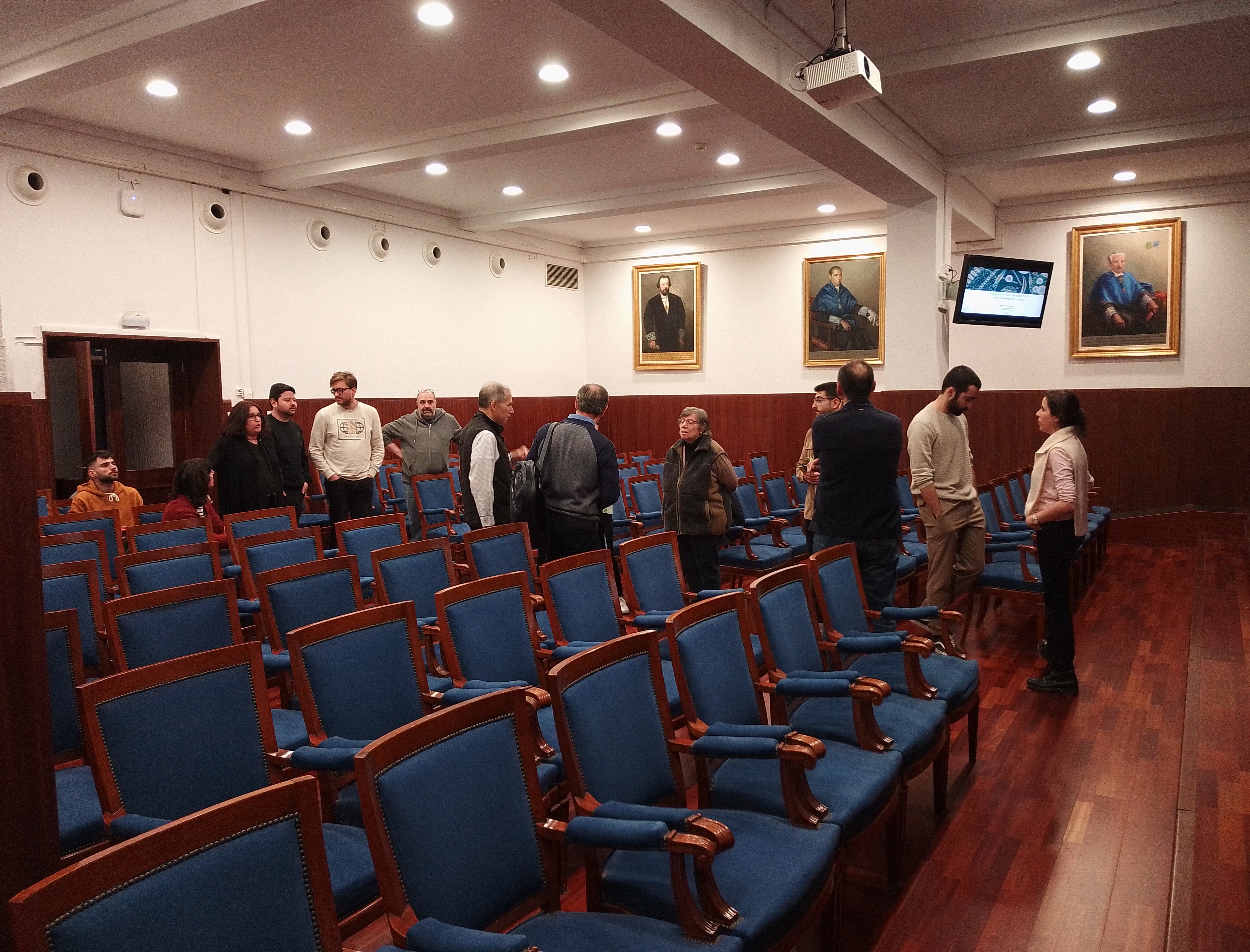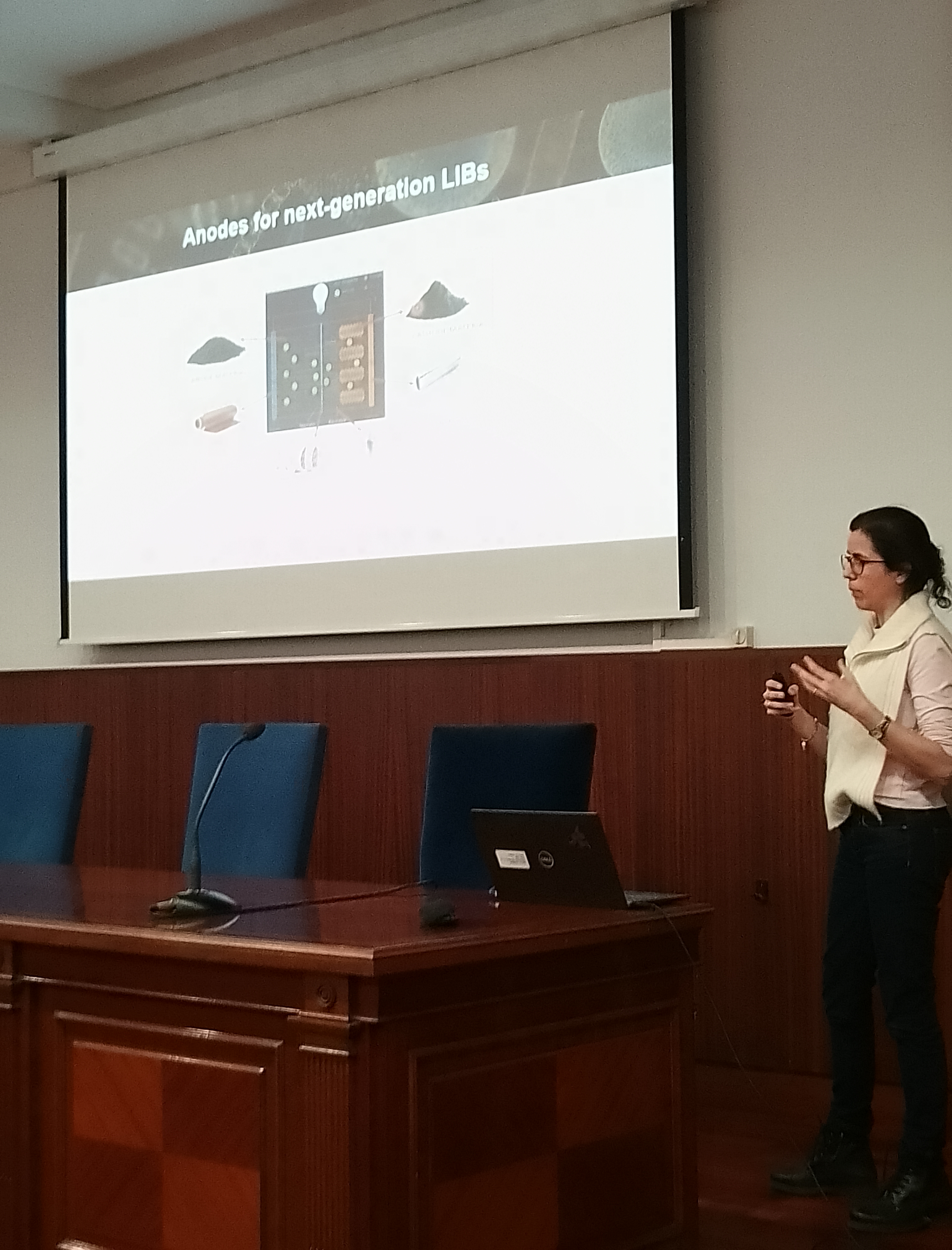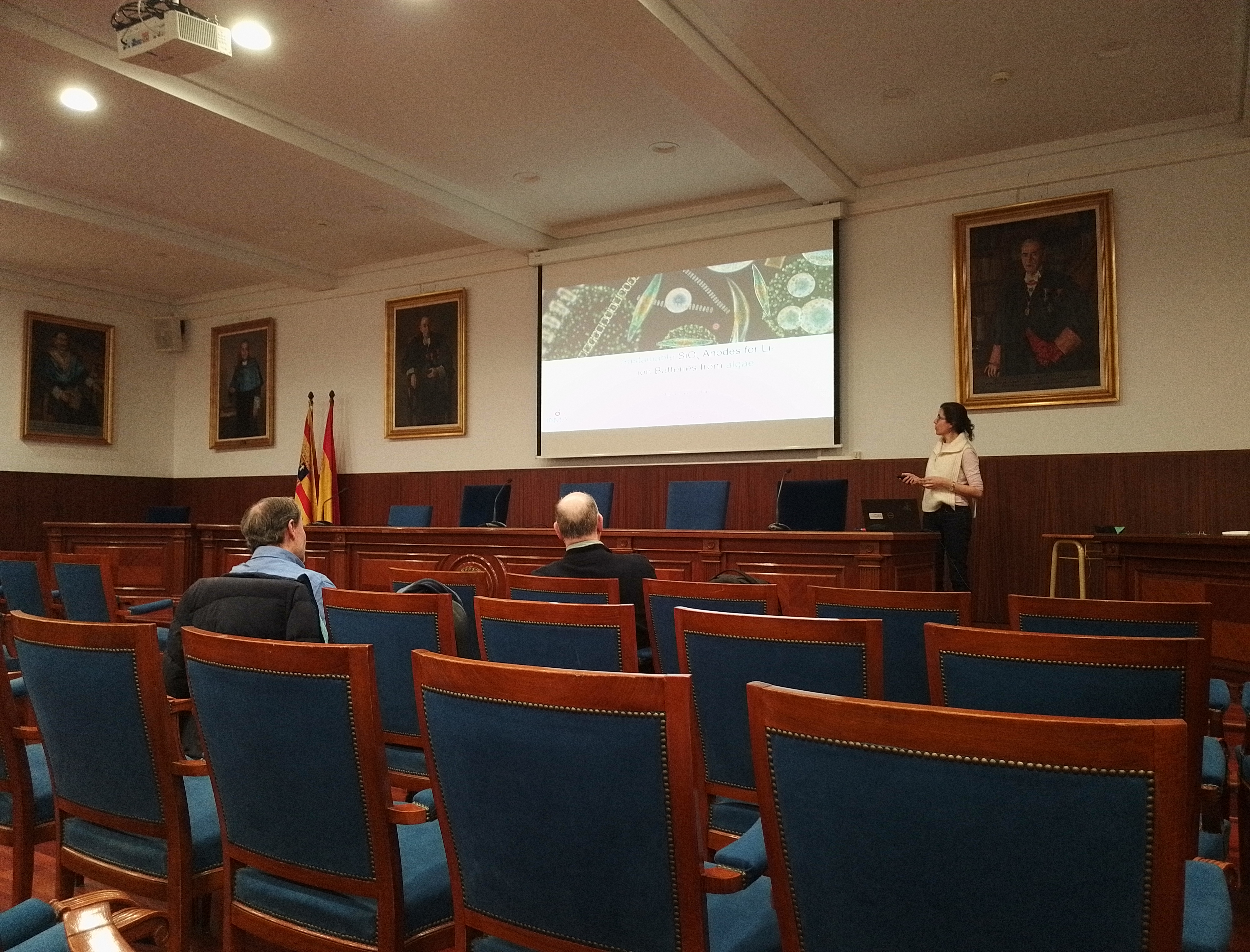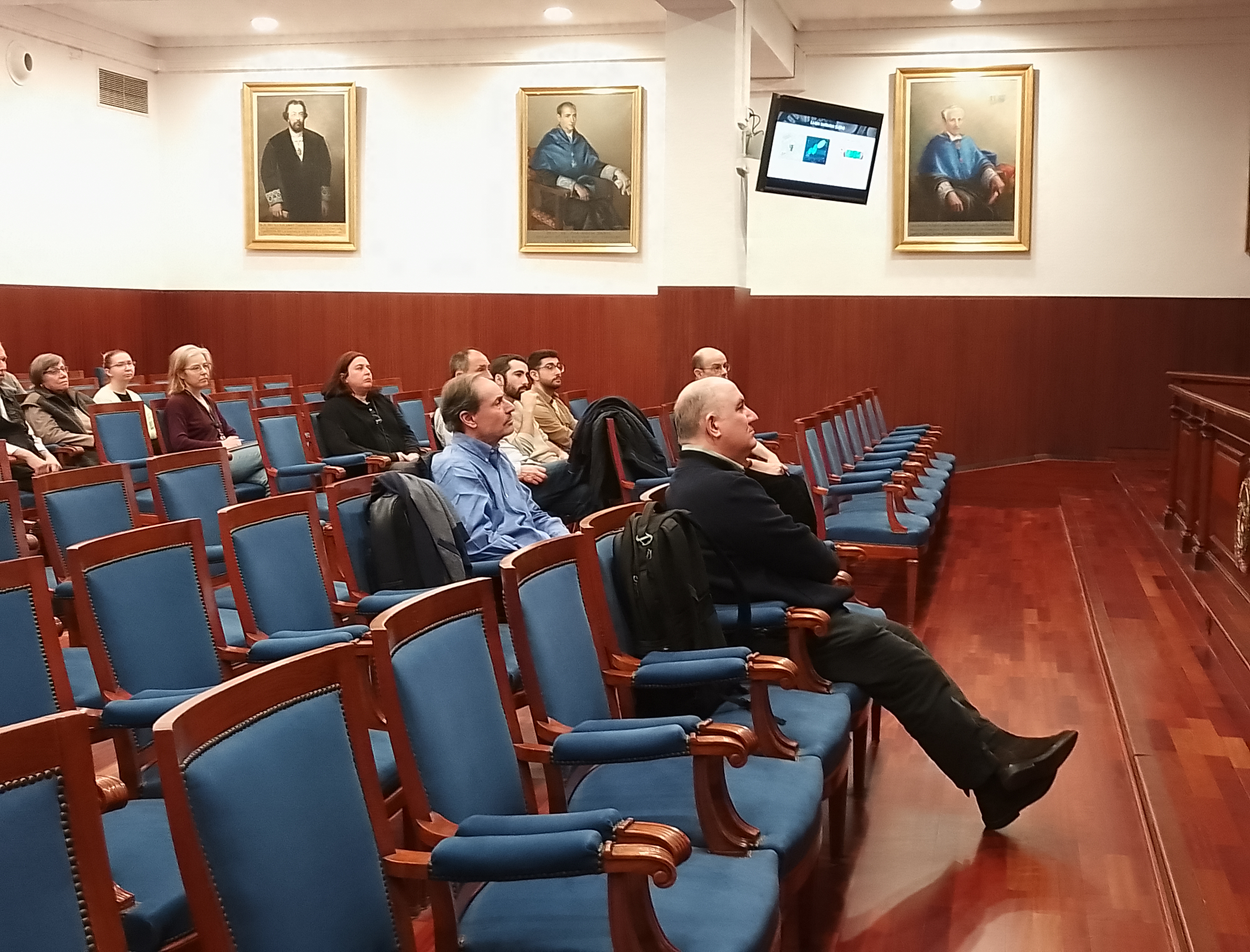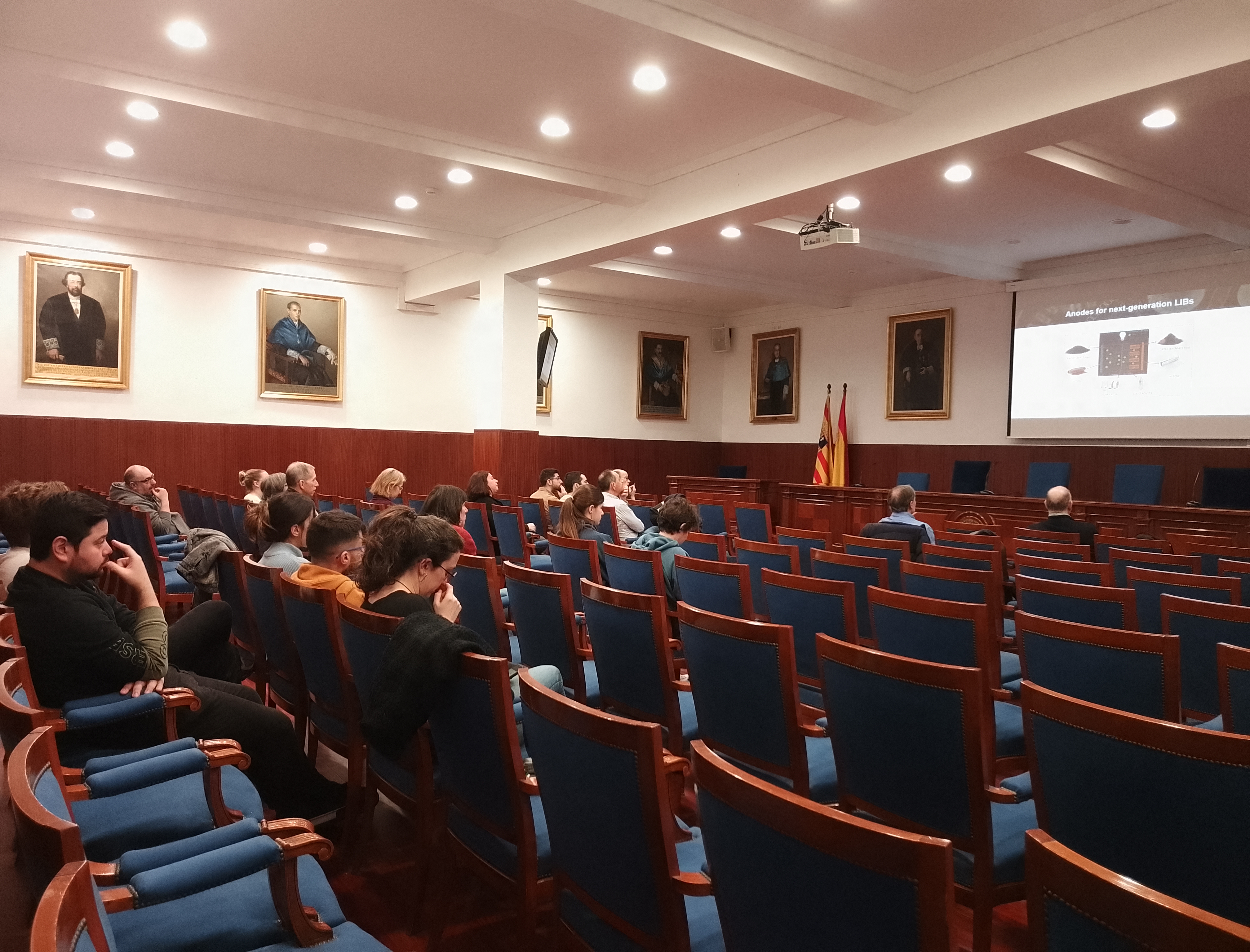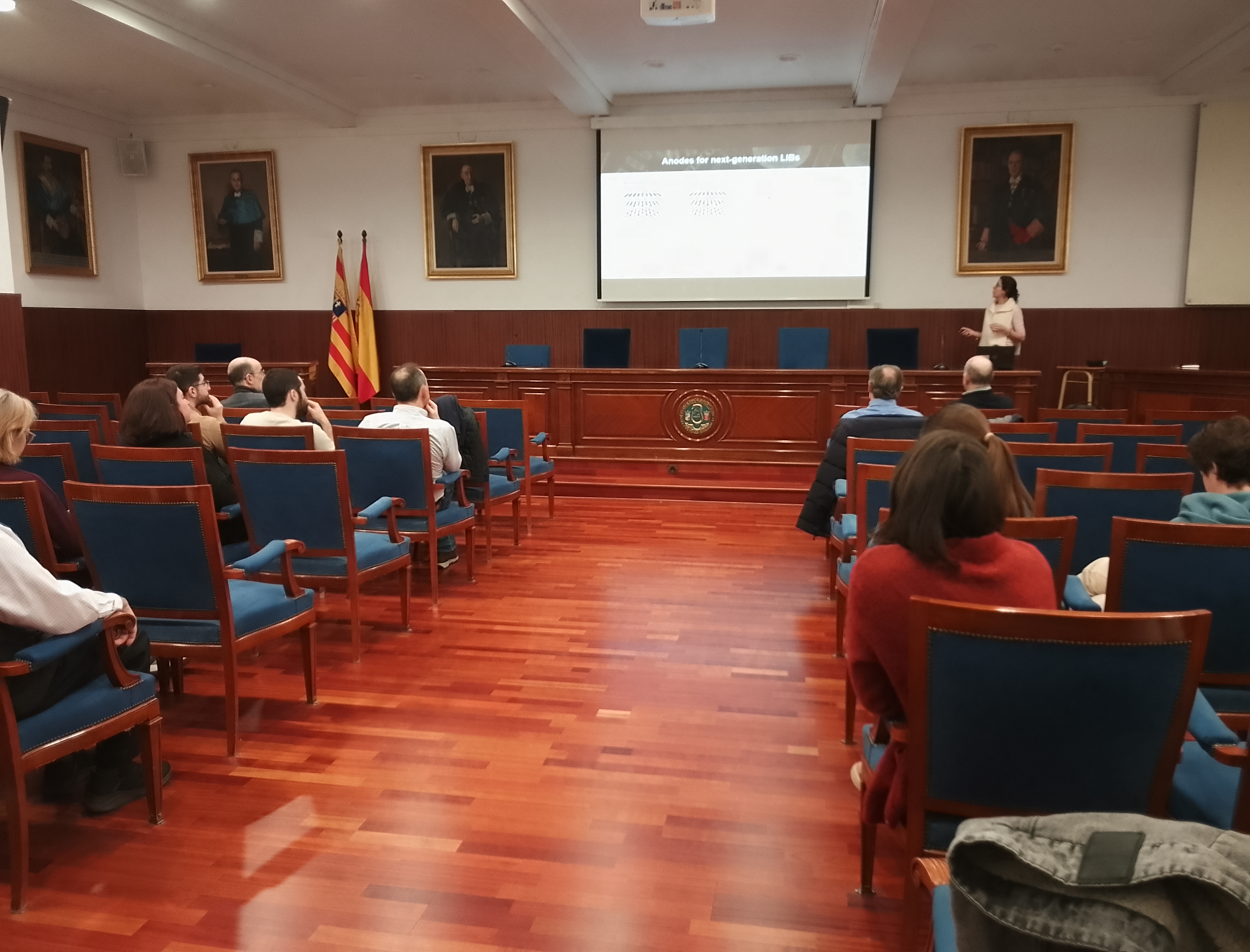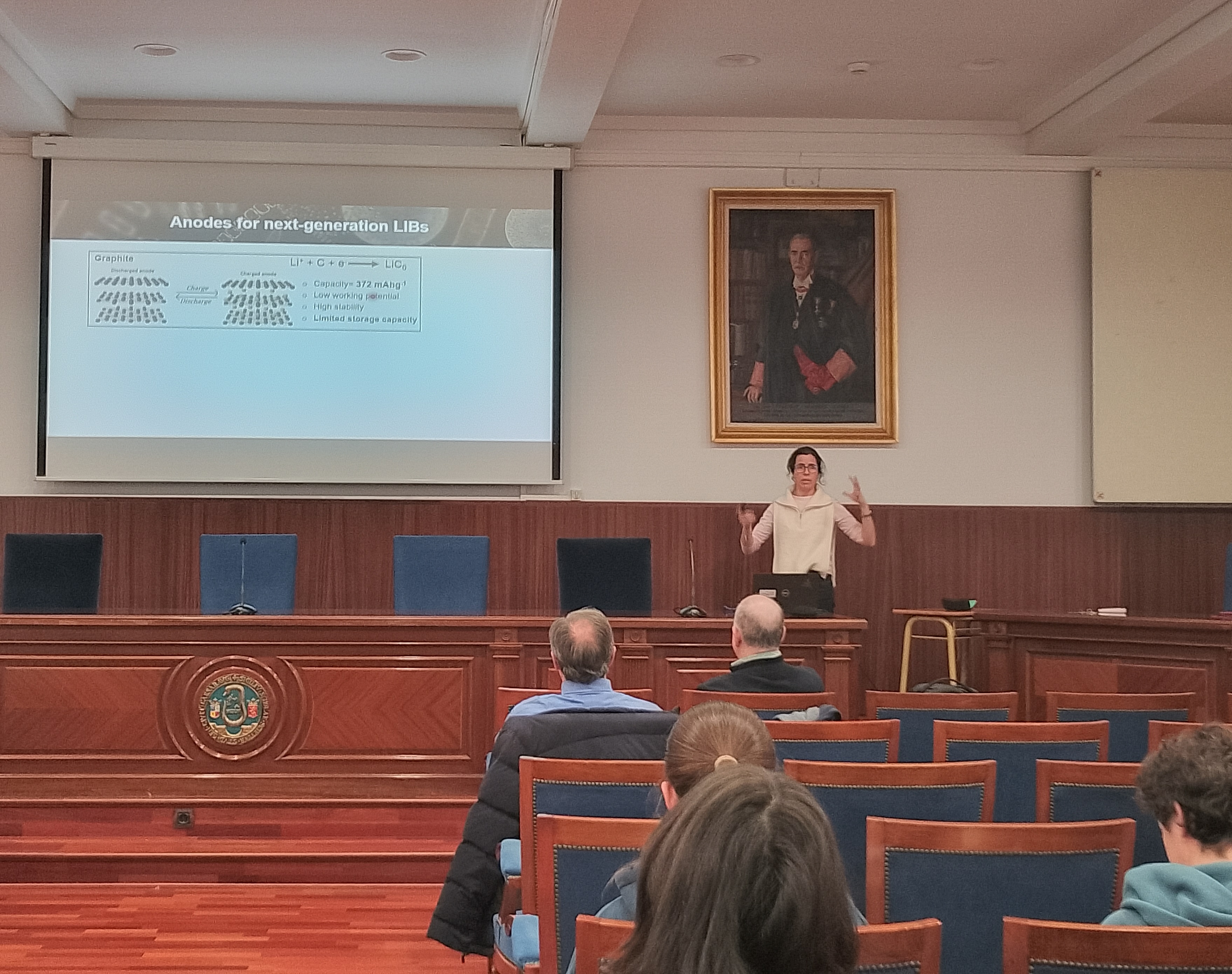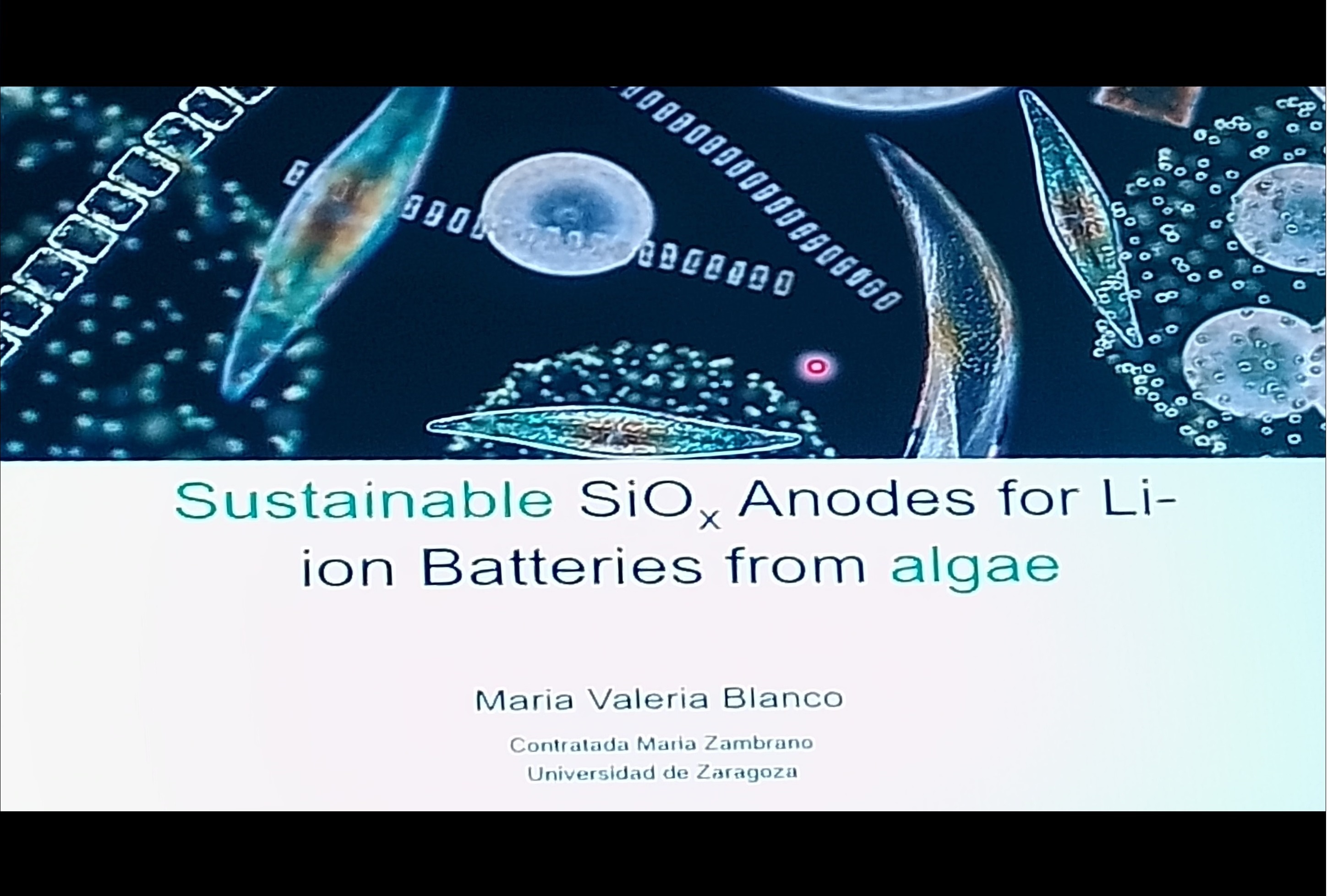
Sustainable Si0X anodes for Lithium-ion Batteries from algae
Li-ion batteries (LIB) has established as one of the most popular technologies in the world, It is heavily used in consumer electronics such as laptops, mobile phones, medicine and electric vehicles, providing a clean and green alternative to nonrenewable fossil fuels.
The technology LIBs use graphite as the anode (negative electrode) and Li metal oxides as the cathode (positive electrode).
Researcher Maria Valeria Blanco has focused her studies on the development of anode materials for next-generation Lithium-ion batteries and introduced the audience who attended this event, to this promising anode material from algae, 10 times greater than the capacity of commercial graphite negative electrodes according to Blanco´s investigation “Sustainable Si0X anodes for Lithium-ion Batteries from algae”.
The event took place in the Institute of Nanoscience and Materials of Aragon, in the University of Zaragoza, on February 22nd.

